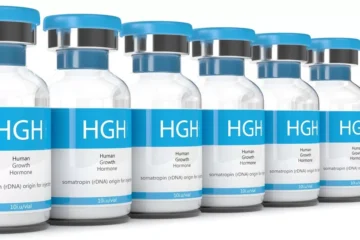For many facing addiction, the journey to sobriety is fraught with challenges and setbacks. A crucial stepping stone in this journey is seeking professional help. Such aid provides the tools and resources necessary for individuals to triumph over their addictions and leads to sustainable, long-term sobriety. The path to recovering from substance abuse is seldom linear and often requires more than sheer willpower or good intentions. Below, we examine why recovery assistance is not a luxury but a necessity for breaking the chains of addiction.
Understanding the Importance of Addiction Recovery Help
Addiction is a complex disease that affects brain function, leading to compulsive behavior despite negative consequences. Recovery requires more than just abstinence; it involves changing one’s lifestyle, thought patterns, and coping mechanisms. Addiction recovery help offers a structured environment, guiding individuals through detox and beyond to address emotional, behavioral, and psychological well-being.
Professional support in recovery is key to uncovering the root causes of addiction, whether it’s trauma, stress, or mental health issues. Treatment plans are tailored to individual needs, with settings like outpatient clinics and rehabilitation in Colorado. Relapse prevention education also plays a crucial role, teaching people how to recognize and manage triggers to maintain long-term sobriety.
The Role of Support Systems in Maintaining Sobriety
Recovery from addiction is a complex process that requires a strong support system, including peers, family members, and professional staff. This network provides encouragement, understanding, and a sense of belonging, which are essential for sustaining recovery. Peer support groups like Alcoholics Anonymous or Narcotics Anonymous foster shared experiences and empathy, while family therapy helps heal relationships strained by addiction.
Professional guidance helps heal these breaks, and involving family members in the recovery process provides personal support. The treatment team’s continuity of care ensures that clients do not feel abandoned after initial treatment phases, with follow-up meetings, therapy sessions, or check-ins by the rehabilitation staff. This helps clients move forward on their sobriety path.
Overcoming Triggers and Cravings with Professional Guidance
Addiction treatment involves understanding and managing triggers and cravings, which can lead to relapse if not addressed. Professional addiction counselors help individuals identify their triggers and develop effective coping strategies. Cravings can arise unexpectedly, testing even the strongest resolve. Techniques like mindfulness, grounding, and cognitive behavioral strategies help individuals control their responses to triggers and avoid substance use.
Addiction recovery help also includes teaching skills like stress management and emotional regulation. Professionals guide individuals in finding alternative activities and hobbies for a fulfilling substance-free life. Rehabilitation programs often use medications to manage withdrawal symptoms and cravings, with medical supervision ensuring safe and effective use. This multi-faceted approach tackles addiction from all angles, increasing the chances of successful recovery.
Developing Healthy Habits and Coping Strategies
Addiction recovery involves developing healthy habits and coping strategies to replace negative habits often associated with addiction. These include eating nutritious meals, engaging in regular physical activity, and maintaining a stable sleep schedule. Treatment programs emphasize the importance of building robust coping strategies for dealing with life’s uncertainties, such as seeking social support, engaging in hobbies, or practicing relaxation techniques.
Professional guidance helps individuals set realistic goals and create action plans to achieve them, providing a sense of accomplishment and purpose. Individuals learn to create structured daily schedules to keep them active and engaged, minimizing idleness that can lead to temptation. The establishment of these habits and strategies is an ongoing process that benefits from continued input and reinforcement from recovery specialists.
The Impact of Continued Care on Relapse Prevention
Continued care and aftercare programs are crucial for preventing relapse in individuals who have recently relapsed from drug use. These programs provide stability and ongoing support, helping individuals navigate life’s challenges post-rehab. They involve ongoing involvement with recovery services, ensuring that progress made during initial treatment is built upon.
These programs often include group therapy sessions, individual counseling, and check-ins with treatment providers. They also emphasize the importance of long-term engagement with the recovery community and services, ensuring access to resources over time. Continued care reduces the risk of relapse by providing a support system to help navigate rough patches, which is essential for those committed to staying sober.
Overall, the necessity of addiction recovery help cannot be overstated. It serves as the backbone of a successful long-term sobriety strategy, offering the guidance, support, and skills necessary to cope with the challenges of a life free from substance dependency. By leveraging ongoing treatment and support systems, individuals can transform their lives and maintain their commitment to a healthier, happier future.
Keep an eye for more latest news & updates on Hint Insider!




